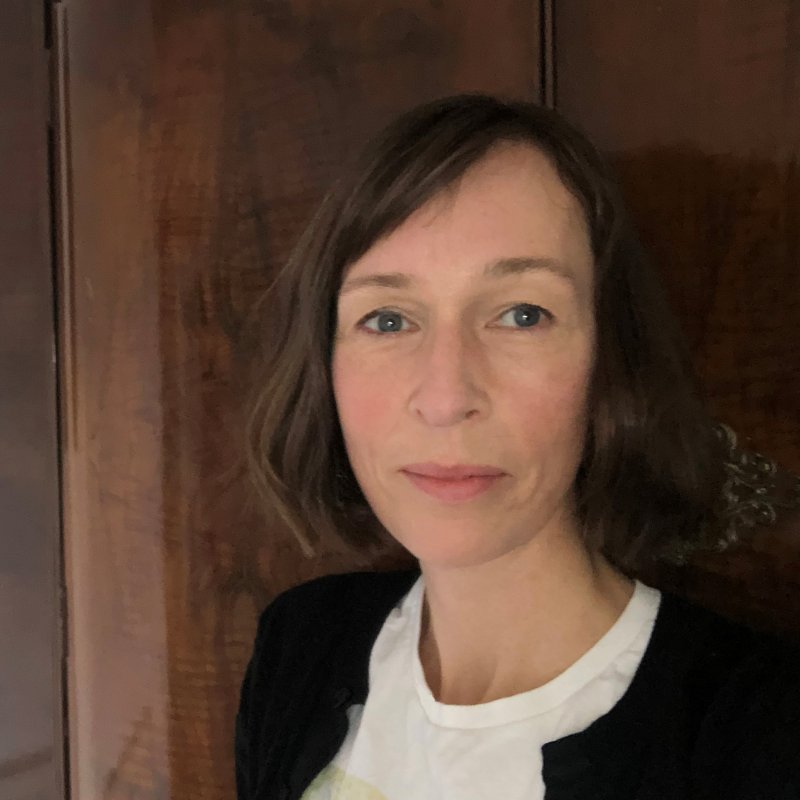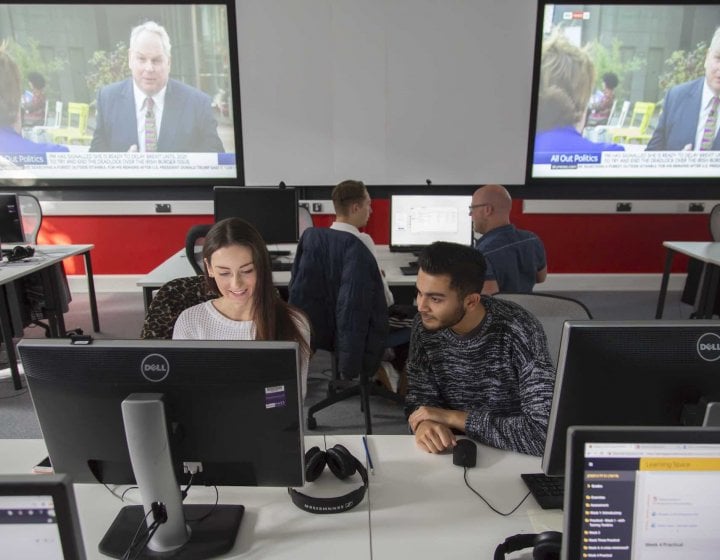Dr Abigail Wincott
Associate Professor of Audio Journalism
Abigail Wincott is Leverhulme International Fellow at l'Université Paul-Valéry Montpellier, working with Radio France Internationale. She has worked as an audio journalist and producer for over 20 years, including 15 years at the BBC World Service and Radio 4. She joined Falmouth University’s School of Communication in 2019. At the BBC she produced and presented a range of output across education, current affairs, arts, science and documentaries for UK and international audiences. She is based in the School of Writing and Journalism, where she teaches journalism and media theory and practice, specialising in audio production.
Her research centres on what happens when new media technologies meet existing audience and professional cultures and spaces. In partnership with the BBC she explored barriers to meaningful audience interactivity in speech radio. She produced a series of multimedia locative heritage trails in Manchester as Senior Research Fellow on the EU/AHRC Waterways Heritage project, and has investigated how journalists use immersive audio through interviews in 6 different countries.
Thanks to funding from the ERDF Immersive Business fund, this research has been used to produce workshops for programme makers. This ties in with her work on equitable growth of the creative industries, via a Research England funded partnership between Falmouth and Cornwall Council in 2021.
Abigail is Co-Editor of RadioDoc Review, a journal dedicated to the study of audio documentary and features. She chairs the MeCCSA Radio and Audio Studies Network, is a member of the AHRC Peer Review College and, with Prof Neil Fox, is organising the 2028 MeCCSA annual conference at Falmouth.
Research & Knowledge Exchange Projects
Abigail Wincott is part of the following Research & Knowledge Exchange projects at Falmouth University. Click on the links below to read more:
External Links
Qualifications
Qualifications
| Year | Qualification | Awarding body |
|---|---|---|
| 2017 | PhD | University of Brighton |
| 2011 | PgCert | University of Brighton |
| 1994 | BA(Hons) | University of Kent |
Research Interests
Research interests and expertise
Abigail Wincott's particular areas of knowledge and interest are in interactions between professionals and changing technologies used in factual audio storytelling – radio and podcast journalism and documentaries and heritage and history applications, such as museum installations. This has included geolocated apps and so-called immersive audio: binaural, ambisonics etc. How do people imagine new technologies, how are they enrolled into professional and organisational discourses, and how do professionals adapt to them – or how do the technologies get adapted to people and their production cultures?
She has focused especially on the use immersive sound for radiophonic journalism. In the age of headphone listening, binaural is experiencing a renaissance. It offers new creative possibilities for factual storytelling, but presents new challenges to the grammar and conventions of speech radio, production processes and even the identity of journalists.
She has recently collaborated with interactional linguists at 'Université Paul-Valéry Montpellier, to explore the response of UK political podcasting political instability and crisis, taking Brexit as a case study.
Her current work involves working with producers, journalists and sound engineers to capture and articulate key moments in the process of creating documentaries, reportage and packages for radio and podcasting. The work will develop understanding of the concepts and techniques used in factual audio storytelling, which has historically been held as tacit and embodied knowledge. This project aims to contribute to the development of a larger and more nuanced vocabulary of the craft choices in audio production. This can then be used to help producers communicate their ideas better, and in education and training.
Abigail Wincott is interested in supervising students in media, journalism and cultural studies, particularly in the following areas:
- Radio and podcast journalism and documentary
- Professional cultures in audio production
- Practice-based journalism research projects
- Spatial media (location-based or locative media, immersive media)
Research Topics
- Journalism Studies
- Immersive Media
- Sound
- Heritage
Research Outputs
Publications and research outputs
-
Wincott, Abigail
(2026), Why don't more journalists and documentary makers use spatial audio?, In: Radio Journal: International Studies in Broadcast & Audio Media, Intellect, UK, 23 (2), ISSN: 1476-4504, Item availability may be restricted. -
Wincott, Abigail
(2025), ‘Why don’t more journalists and documentary makers use spatial audio? Barriers to sonic experimentation in contemporary radio and podcast production cultures,’ , Radio Journal: International Studies in Broadcast & Audio Media 23(2) -
Wincott, Abigail
Fauré, Laurent, (2025), Des médias de crise ?, In: Radiomorphoses, Open Edition Journals, Pessac, France, no volume (14), ISSN: 2649-9630 -
Lodhi, Aasiya and Wincott, Abigail
(2024), Introduction: Audio Storytelling and the Global South, In: RadioDoc Review, University of Wollongong, Wollongong, Australia, 9 (1), ISSN: 2203-5176 -
Wincott, Abigail
(2024), Nigeria's Untold Stories at a Moment of Change, In: RadioDoc Review, University of Wollongong, Wollongong, Australia, 9 (1), ISSN: 2203-5176 -
Wincott, Abigail and Preger, Sven
(2024), Not just dubbing: ways to work with more than one language in audio documentaries and podcasts, RadioDoc Review 9(2) -
Wincott, Abigail
(2023), Un bon voyage sonore:, In: Journal of Radio and Audio Media, Taylor and Francis, USA, ISSN: 1937-6529 -
Wincott, Abigail, Martin, Jean and Richards, Ivor
(2022), Telling stories in soundspace: placement, embodiment and authority in immersive audio journalism, In: Radio Journal, Intellect, Bristol, 19 (2), ISSN: 14764504 -
Wincott, Abigail
Ravenscroft, Neil and Gilchrist, Paul, (2020), Roses and Castles: Competing visions of canal heritage and the making of place, In: International Journal of Heritage Studies, Taylor and Francis, UK, 26 (8), pp. 737-752, ISSN: 1352-7258 -
Gilchrist, Paul, Ravenscroft, Neil and Wincott, Abigail
(2018), Watery pasts and the constellation of the canal, In: Euwather Scientific Report, Euwather Project Website (EU JPI Project Report), Venice, Italy, pp. 15-37, ISSN: n/a -
Wincott, Abigail
(2017), Treasure in the vault: the guardianship of 'heritage' seeds, fruit and vegetables, In: International Journal of Cultural Studies, Sage, Sage, 21 (6), pp. 627-642, ISSN: 13678779 -
Wincott, Abigail
(2015), Heritage in danger or mission accomplished? Diverging accounts of endangerment, conservation and 'heritage' vegetables in print and online, In: Food, Culture and Society, Taylor and Frances, London, 18 (4), pp. 569-588, ISSN: 1552-8014
-
Wincott, Abigail
(2023), Cuts, fades and layers: Audio production interfaces and mental schemas for radiophonic storytelling, In: IAMCR Annual Conference 2023, 9-13 July 2023, Lyon, France -
Wincott, Abigail
(2022), Where is the listener?: Changing conceptions of the audience in immersive radio and podcasting, In: IAMCR Annual Conference 2022, 11-15 July 2022, Beijing China/Online, pp. 1-10
-
Frears, Lucy
Chatfield, Andy and Wincott, Abigail, (2022), Equity, Diversity & Inclusion: How to make your cultural leadership more diverse., Academy of Innovation and Research: Research -
Wincott, Abigail, Martin, Jean and Richards, Ivor
(2020), Spatial Awareness: State of the art and future needs of spatial audio journalism
-
Wincott, Abigail
(2020), Growing Heritage, Routledge, Abingdon; New York, ISBN: 9781138300835, Item availability may be restricted.
-
Wincott, Abigail
Fauré, L and Osorio-Ruiz, N, (2025), ‘The UK’s Brexit podcasts: the temporal affordances of podcasting in a time of crisis.’ In M. Perrotta (Ed) Podcast in the Future of Journalism. Rome: Roma Tre Press. -
Wincott, Abigail, Fauré, Laurent and Osorio-Ruiz, Natalia
(2025), The UK’s Brexit podcasts:, In: Podcast in the future of journalism, Roma Tre Press, Rome, pp. 149-162, ISBN: 979-12-5977-470-5 -
Wincott, Abigail
(2018), When Carrots Become Posh: Untangling the Relationship Between 'Heritage' Foods and Social Distinction, In: Alternative Food Politics: From the margins to the mainstream, Routledge, London and New York, ISBN: 978-1-138-30080-4 -
Wincott, Abigail
(2016), The allotment in the restaurant: the paradox of foodie austerity and changing food values, In: Popular Culture and the Austerity Myth: Hard Times Today, Routledge, Abingdon, pp. 28-41, ISBN: 978-1138942943 -
Wincott, Abigail and Griffin, Kathleen
(2013), Interactivity beyond the Newsroom: a study of the interactive relationship in two BBC radio productions, In: Public Service Media in the Digital Age, Cambridge Scholars Publishing, Cambridge, pp. 69-88, ISBN: 9781443853033
Research Students
Current research students
I supervise PhDs in journalism, radio, podcasting and sound, and immersive or locative media.
Current PhD supervisions:
- Sana Batool | Erasure: Media Representation of Anti-Shia Violence in Pakistan
- Kamal Mahmoud | A study of micro-casting as a new form of citizen journalism in Sudan
- Dinah Hayward | Aural diversity and composition practice
- Drew Turner (AHRC 3D3 funded) | Our Future Home: how illustrated narrative can help a generation (re)imagine their future living conditions
- Scheherazade Safla | Africa Between the Lines: An Analysis of News Podcast Narrative Strategies
- Lucie Akerman | Life’s a beach, or is it? Cornwall, the rural idyll and Machine Learning: examining the potential for equitable representation through a small-scale localised image dataset
- Chiara Fabbri | Beyond the Lens: Exploring Direct Gaze and Bodily Presence in VR Journalism
- Sven Preger | How we tell true stories: Analysis of storytelling techniques in factual narrative German podcast serials
Completed PhDs:
- Faith Kirigha | Digital Authoritarianism: A critical examination of the regulation of social media content and its impact on freedom of speech in Kenya
- Jerry Padfield | Broadening Participation in Community Radio: Investigating Methods for Inclusion and Wellbeing
Teaching
Courses taught
- Journalism BA(Hons)
- Journalism and Creative Writing BA(Hons)
- Sports Journalism BA(Hons)

